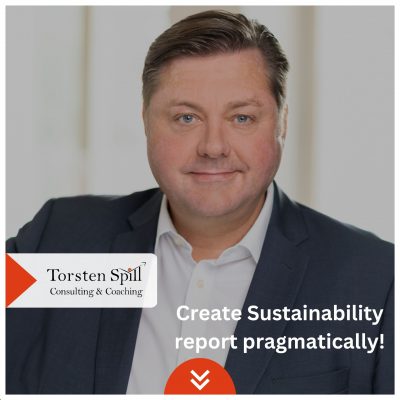Auditors, banks, chambers of commerce and experts are pointing out an important new requirement to SMEs: The obligation under CSRD to prepare a sustainability report!
There are many homepages, articles, whitepapers and blog posts that are being poured onto the companies concerned. Auditors are warning their clients to be prepared. Banks are threatening to offer poorer conditions if sustainability performance is inadequate. Chambers are offering events and seminars to explain the “spectre” of sustainability reporting in accordance with the ESR standard. For many entrepreneurs, this tends to raise even more questions…
For many SMEs, this obligation is initially an “additional expense that causes costs, ties up capacities and, on the surface, does not benefit the business”. According to a study conducted by Haufe-Lexware in early 2024, 55% of German SMEs are “skeptics” or “beginners” when it comes to systematically sustainable management. The constant warnings about the CSRD lead to this group of companies putting off the topic, as there are also many challenges to be overcome due to other changes in the framework conditions.
The good news is that preparing a sustainability report in accordance with ESRS can be pragmatically implemented in day-to-day business with limited additional effort. It is crucial to involve employees in the implementation steps from the outset, to form sustainability teams and to approach the work steps of the implementation phase holistically and systematically.
You can read about what needs to be done in the many expert articles. But only a few explain how to put it into practice. My recommendation: Use the “ZNU Standard for Sustainable Management” as a guide. Let’s talk about how you can apply this system to meet the reporting requirements pragmatically and with limited effort.
What hurdles do you see for your company?
